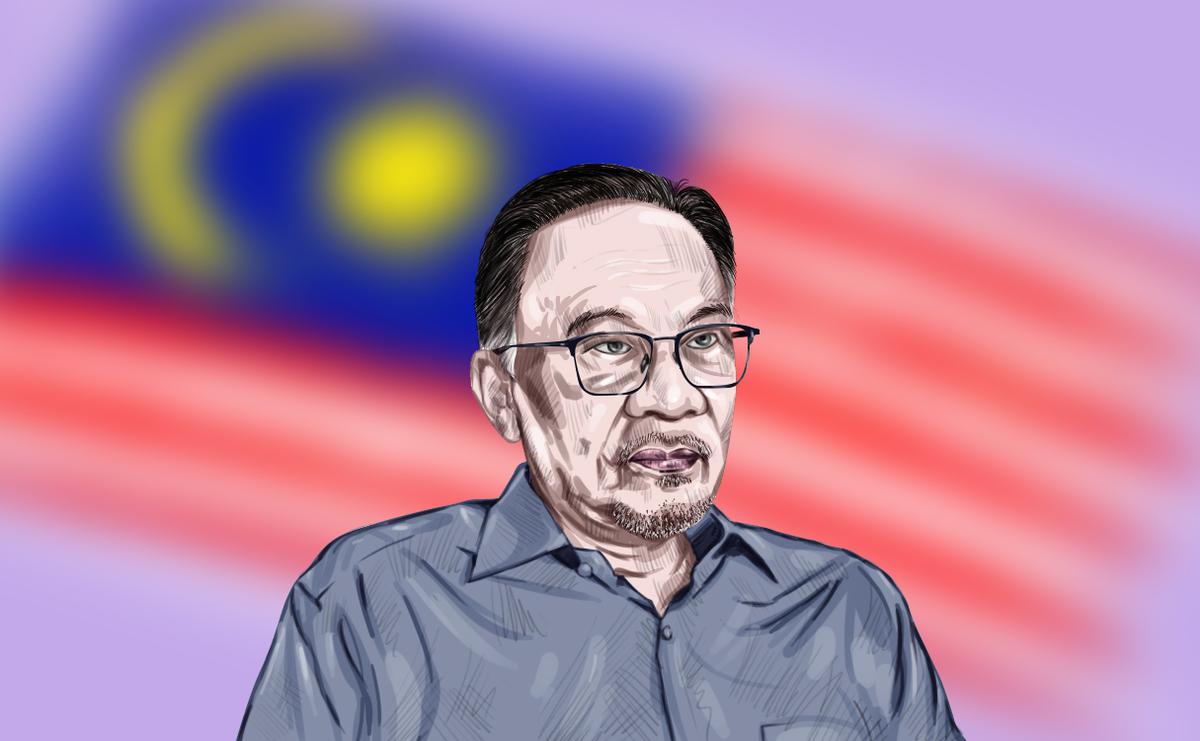
Anwar Ibrahim | Rise of the reformer
The Hindu
Malaysia’s perennial opposition leader has traversed a tumultuous political journey to finally assume the post of Prime Minister
On being released from prison after six years in 2004 for what was seen as trumped-up charges of corruption and sodomy, Malaysia’s newly sworn-in Prime Minister Dato’ Seri Anwar Ibrahim spoke in interviews of having read all volumes of Shakespeare four times over during his incarceration. He spoke of how the English playwright enabled him to fly away from the small constraint of those four walls. Mr. Anwar’s journey from being sacked and imprisoned by his own mentor and Malaysia’s former Premier Mahathir Mohammad to leading a mass reform movement from his jail cell is nothing short of a Shakespearean tale itself, having all the essential elements of betrayal, tragedy, and irony.
After days of political gridlock following divisive national elections that produced a hung Parliament this month, Mr. Anwar, long-time opposition leader and Malaysia’s face of democratic resistance, was named by the country’s kingas its 10th Prime Minister on Thursday, November 24.
He was born in 1947 to a family of politically active parents in the small town of Cherok Tok Kun in Malaysia’s Penang, and thus his path to student politics was only natural. While his father, Ibrahim Abdul Rahman, was a hospital porter-turned-MP, his mother Che Yan Hussein was a grassroots political organiser against the then-British rule in Penang. Mr. Anwar’s career began as a firebrand, charismatic student activist in the 1970s, who built on the Muslim empowerment movement and protested against the then long-ruling party United Malays National Organisation (UMNO).
He co-founded the Angkatan Belia Islam Malaysia (ABIM), the country’s Islamic youth movement in 1971. He was arrested and jailed for 20 months for participating in a student protest for rural farmers. In what came as a twist in the early 1980s, he was co-opted by Mr. Mahathir into the UMNO, the very party he first opposed.
Rapidly rising up the political ranks from successively becoming the Culture, Agriculture, and Education Minister in the 1980s to assuming the Finance Minister and Deputy Prime Minister post in the 1990s, Mr. Anwar began to be seen in the country’s political circles as the protégé and heir-apparent of Mr. Mahathir. Mr. Anwar was at the peak of his career and was credited with enabling Malaysia to tide over the damaging Asian financial crisis of 1997-98 by imposing cuts on government spending and adopting the International Monetary Fund’s market-oriented methods. He was named in 1996 by Asiamoney as Finance Minister of the Year followed by Newsweek International’s title of Asian of the Year in 1998. It was in this period that economic policy differences began to surface between him and Mr. Mahathir, who, Mr. Anwar said had a “penchant” for mega-projects while Malaysia needed to be cautious of potential convulsions in the global economy. Nonetheless, he came so close to becoming the country’s leader when Mr. Mahathir appointed him as the acting Prime Minister while on a two-month vacation in 1997.
Tensions in what Mr. Anwar often described as the ‘father-son’ relationship came to a head when he began advocating political reform within the UMNO and challenged the leadership of his boss, accusing him of nepotism and cronyism. In retaliation, Mr. Mahathir sacked him from the deputy’s post in 1998, which marked the start of his protests for reforms, inviting his arrest. In the next two years, he was sentenced to a total of 15 years in prison for separate charges of corruption and homosexual acts, both of which he denied and described as politically motivated. Pictures of Mr. Anwar with a black eye and facial bruises were printed in world newspapers as he accused the former Malaysian police chief of beating him up. He soon became an international symbol of democratic struggle and the reform movement dubbed ‘reformasi’ gained momentum.
The year 2004 saw him being released from prison but his disqualification from active politics continued till April 2008. However, his wife Wan Azizah led her party and a coalition to make gains in the 2008 election, later stepping down for her husband to contest by-elections and make his return to Parliament. The opposition leader’s legal battle, though, was far from over as he faced another sodomy charge from a former aide, which the international community called politically motivated. He was acquitted by the Malaysian High Court in 2012 but could not form the government post the 2013 elections despite his coalition securing half the popular vote. The politician refused to concede and led another public agitation to achieve electoral reform. In 2015, however, he was back in prison as a court overturned his 2012 acquittal during former Prime Minister Najib Razak’s term, which many saw as a page taken from Mr. Mahathir’s playbook













